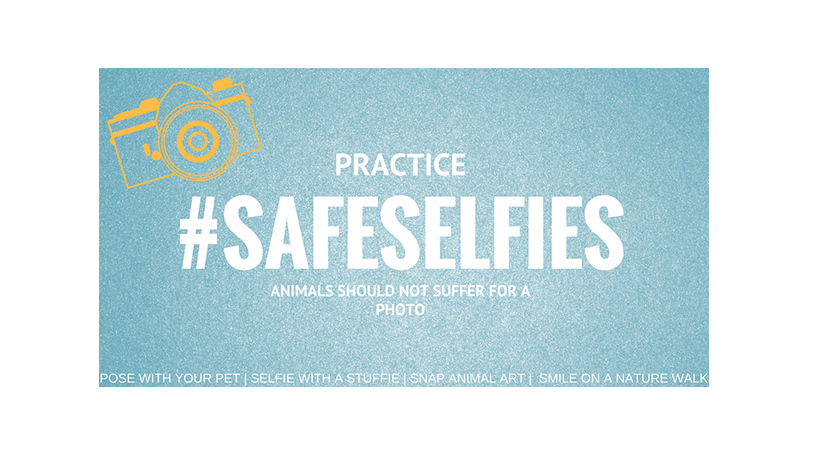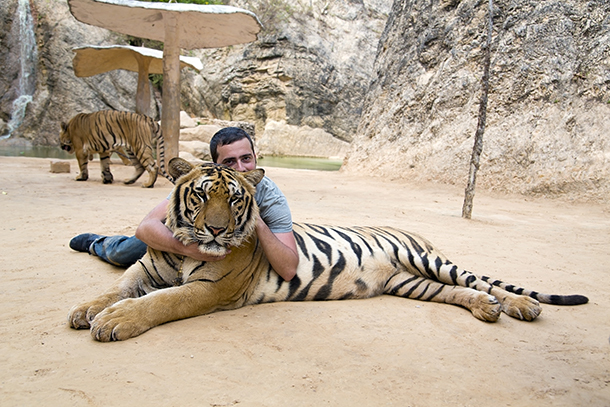Big Cats in Captivity Rescue and Advocacy - United States
There are more tigers in captivity in the United States than there are in the wildAnimal endangerment issues warrant need for #safeselfies
Animal endangerment issues warrant need for #safeselfies

Selfies have become social currency. It is no longer enough to visit the Blarney Stone. You need an upside-down kissing snapshot on Instagram to get people to double tap.
We are social creatures, and research shows that photos with our faces in them receive an average of 38 percent more likes.
So sharing our experiences does get your friends and followers’ attention.
But are the likes worth endangering the life of an animal?
Take, for instance, the story of the dolphin selfie incident earlier this year in Argentina, where the dolphin eventually died as tourists surrounded the creature.
That was only what went viral.
All around the world, people may be making very poor choices in taking photos dangerously close to wildlife. Not only can it cause stress, injury or death to an animal, in some cases, the people are putting themselves in danger from an attack or spread of a disease.
What’s more, there are facilities that exist solely for you to interact with captive wild animals, like big cats, and the selfies you generate provide viral marketing for the outfit.
While cub petting, roadside zoos and pseudo-sanctuaries may provide you a unique selfie, what does it mean for big cats?
- Deformities - The cub handling industry requires a steady stream of young tigers, lions and other wild cats to draw in customers. To meet this demand, they engage in speed breeding. Big cats are often inbred or crossbred, which can result in serious medical issues.
- Starvation - Cubs may be deprived food so they will readily drink from a bottle affording tourists the ‘perfect shot’.
- Trauma – Speed-breeders often separate cubs from their mothers just hours after they are born. In the wild, comparatively, a mother tiger will stay with her cubs for as long as two years. Premature separation adversely affects cubs’ immune systems, leaving them vulnerable to disease.
- Life in a box – Captive-bred big cats used for direct contact displays cannot be released into the wild. They are bred for a life behind bars, often with minimal access to enrichment, proper nutrition and veterinary care.
- Death - When cubs are no longer “cute and cuddly” (photo-worthy) they may be sold or killed.

Any business that allows you to interact with tigers, lions or other big cats for a photo opportunity is not a conservation organization or a true sanctuary, even though they will try to convince you otherwise.
So what is a safe selfie? If you love animals and want to share that, take one with a pet or domesticated animal. If you insist on taking photos of the great wildlife you see, take them from a distance, ensuring the safety of you and the animal in the photo.
We’re asking you to stand up for animals everywhere.
Take our pledge to “Practice #SafeSelfies.”
--Kerry Branon
Related content
Every problem has a solution, every solution needs support.
The problems we face are urgent, complicated, and resistant to change. Real solutions demand creativity, hard work, and involvement from people like you.